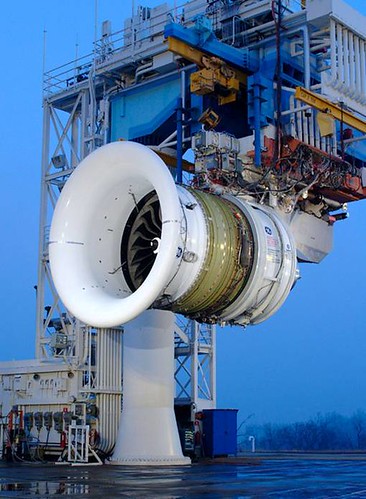
GE Aviation is collaborating with USDA Rural Development, the Ohio Aerospace Institute (OAI), air carriers and producer groups to investigate opportunities for an Ohio or Midwest-regional approach to providing renewable-jet fuel in support of production engine testing at GE Aviation’s sprawling Cincinnati-area facilities. GE Aviation anticipates purchasing up to 5 million gallons of renewable-jet fuel beginning in 2015.
A recent workshop at GE Aviation’s Queen City headquarters drew public-sector stakeholders such as USDA’s Renewable Energy Advisor Todd Campbell, Bill Harrison from the U.S. Air Force Research Laboratory (Wright Patterson Air Force Base), and representatives from the offices of U.S. Senator Sherrod Brown, Ohio Governor John Kasich, the Ohio Farm Bureau, and researchers from several regional universities.

Following introductory remarks and background information from Steve Csonka, Director of Environmental Strategy for GE Aviation, participants described ongoing activities and identified resources that could assist in achieving the 5 million gallons per-year goal. Additional stakeholders included professionals from across the potential “renewable-jet-fuel-supply-chain-vertical,” including select feedstock producers, processing and transport entities, refiners and finishers, academics and researchers, analysts and financial entities.
GE Aviation’s interest is in forming a working group of committed parties to comprise an integrated supply chain for such production, which would create an attractive business case for public and private investment to support renewable-jet fuel production in the region. In order to explore the formation of an initiative to meet its needs, GE Aviation has contracted with OAI to identify interested parties and evaluate potential options.

In a related development, USDA Ohio Rural Development recently awarded a Value Added Producer Grant to the Ohio Soybean Council. The grant helps initiate a pilot project through Ohio State University’s Bioproducts Innovation Center to refine bio-jet fuel from soybean oil produced by farmer-owners of Ohio’s Mercer Landmark cooperative in western Ohio. The fuel already has been certified by USAF Research and the American Society of Testing and Materials for aviation use. Such a pilot project could provide the basis for commercializing bio-jet fuel production for future GE Aviation purchases.
Earlier today, Secretary Tom Vilsack discussed efforts to develop a Midwest-regional strategy to provide renewable-jet fuel during a visit to GE Aviation's Cincinnati-area facilities. To read more about today’s event click here.



